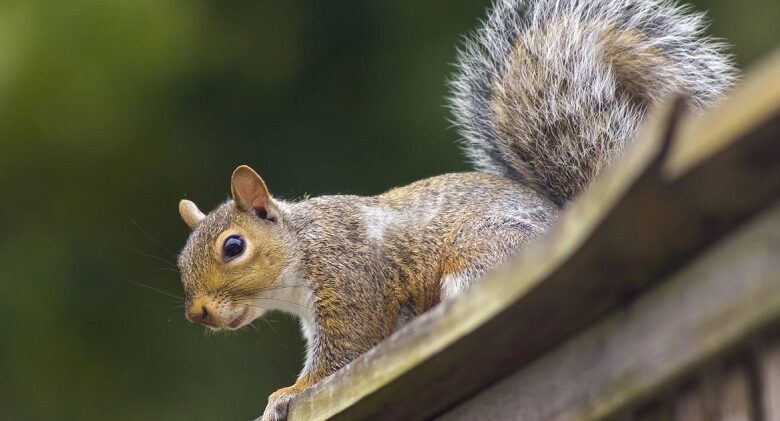Squirrel Damage to Property: Understanding the Risks and Prevention Strategies

Squirrels may seem harmless, but they can cause significant damage to property if they gain access to your home or business. Understanding the types of squirrel damage can help you take effective preventive measures. From chewing through electrical wires to gnawing at insulation and siding, these agile creatures often create costly repairs.
You might notice signs of their activity, such as nesting materials in your attic or chewed-up wood around entry points. The more you know about their habits and potential risks, the better prepared you will be to protect your property. Ignoring the issue can lead to a situation that damages your belongings and jeopardizes your safety.
Taking action quickly can minimize damage and reduce pest-related expenses. By being vigilant and proactive, you can deter squirrels and preserve the integrity of your home. Awareness and response to potential squirrel invasions are key to maintaining a safe environment.
Recognizing and Assessing Squirrel Damage
Identifying and evaluating the extent of squirrel damage is crucial for timely intervention. Knowing the signs and types of damage can help you mitigate costs and prevent further issues.
Signs of Squirrel Damage in House
Look for specific indicators that squirrels have infiltrated your home. Common signs include:
- Gnaw Marks: Squirrels chew on wood, wiring, and insulation.
- Droppings: Small, pellet-like feces can often be found in nests or near entry points.
- Nesting Materials: Shredded paper or insulation found in attics may indicate nesting.
- Scratching Noises: Sounds coming from the walls or attic, especially at dusk or dawn, are a strong indicator.
Understanding these signs can help you act quickly and limit damage to your property.
Property Damage Caused by Squirrels
Squirrels can cause significant property damage. They are known for:
- Roof Damage: They can create holes in roofing materials, leading to leaks and structural issues.
- Wiring Issues: Chewing on electrical wires poses a fire risk and can lead to expensive repairs.
- Insulation Damage: Gnawing on insulation diminishes its effectiveness, increasing heating and cooling costs.
Repairing these damages can be costly, and prompt assessment is necessary to minimize impacts.
How Squirrels Damage Homes in Arlington
In Arlington, squirrels typically find access through vulnerable entry points such as:
- Gaps in Roofs: Missing shingles and damaged eaves can offer easy access.
- Chimneys and Vents: Unprotected openings are common entry points for squirrels seeking shelter.
- Trees Close to Homes: Squirrels often use tree branches to reach roofs and overhangs.
Understanding these factors allows you to take preventative measures, such as securing potential entry points and regularly inspecting your property.
Preventative Measures Against Squirrel Damage

Taking proactive steps can significantly reduce the risk of squirrel damage to your property, particularly in vulnerable areas like attics. Implementing effective prevention methods protects your home and minimizes potential repair costs.
Preventing Squirrel Damage in Attic
Your attic is a prime target for squirrels seeking shelter and warmth. Inspect your roof and eaves for gaps or holes to prevent their entry. These openings should be sealed with materials like hardware cloth or metal flashing.
Key prevention tips:
- Trim tree branches: Ensure they are 6-8 feet from your roof.
- Install chimney caps: This prevents access while allowing ventilation.
- Secure vents: Use metal mesh to protect any ventilation openings.
Keep your attic clean and free of food sources. Check regularly for droppings or nesting signs. Address any issues immediately to deter future infestations.
Squirrel Prevention Methods for Homeowners in Arlington
In Arlington, specific strategies can help prevent squirrels from targeting your home. Start by removing potential food sources outside, such as bird feeders or open garbage cans. If you want to maintain bird feeding, use squirrel-proof feeders.
Effective methods include:
- Bird feeder placement: Hang them at least 10 feet away from trees.
- Close entry points: Examine your foundation, window screens, and doors for gaps. Seal any openings with caulk or insulation.
Additionally, consider professional removal services if you suspect a significant squirrel problem. They can provide tailored solutions based on local conditions and best practices for your area. By staying vigilant and proactive, you can protect your property effectively.
Solutions to Squirrel Damage

Addressing squirrel damage requires a combination of prevention and removal strategies. Effective measures can protect your property from further issues while ensuring the humane handling of any existing problems.
How to Stop Squirrels from Damaging Property
To deter squirrels, secure potential entry points on your property. Inspect your home for gaps in roofs, vents, and eaves. Use materials like metal mesh, wood, or caulking to seal these areas effectively.
Additionally, consider using squirrel repellents. Natural options include applying peppermint oil or cayenne pepper around affected areas. Sonic deterrents that emit high-frequency sounds can also discourage squirrels from nesting nearby.
Keep outdoor areas clean and free of food sources. Ensure garbage bins have tight-fitting lids and remove bird feeders if necessary. Regularly trimming tree branches near your roof can limit their access.
If the problem persists, consulting professionals like Critter Stop for humane wildlife removal can be effective. They have a fantastic reputation and online customer reviews because they provide high-quality work and great customer service. Call Critter Stop at (214) 234-2616 to solve your wildlife issues for a free inspection.





